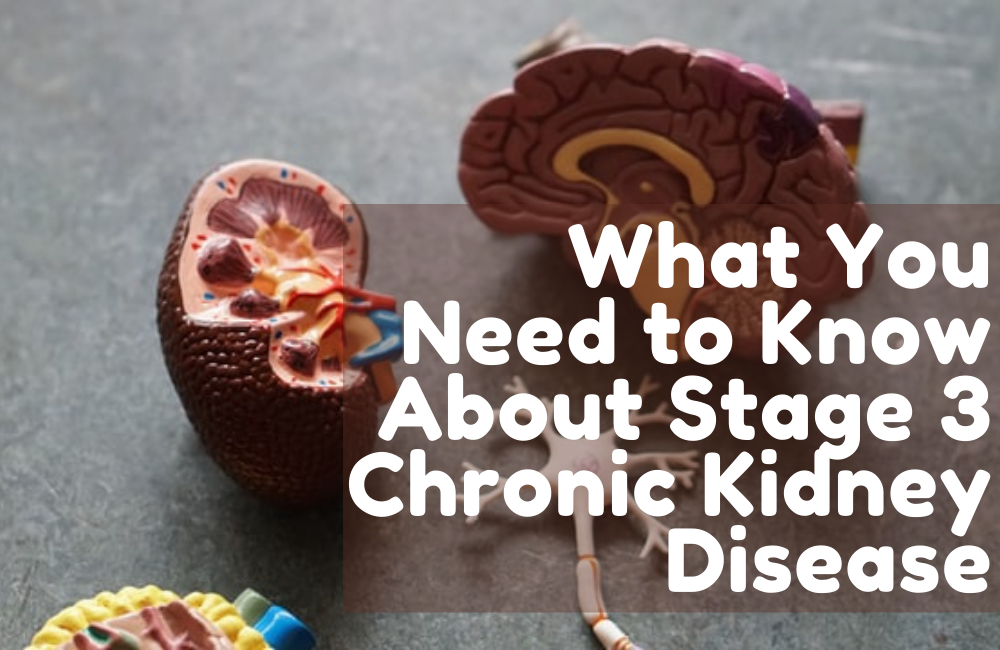Chronic kidney disease, also known as kidney failure, is a condition characterized by a loss of kidney function over five different stages. By stage 3, the estimated glomerular filtration rate falls between 30-59, which means there is mild to moderate kidney damage and a noticeable loss of kidney function. Although this damage is permanent, it’s still possible to delay the disease’s progression.
If your loved one gets diagnosed with stage 3 kidney disease, you may be wondering what to expect, how the disease may progress, and how it will be treated. While it is a concerning diagnosis, The good news is that it can be managed as long as it gets detected early.
What Are the Symptoms of Stage 3 Chronic Kidney Disease?
Most people dealing with stage 3 kidney disease usually don’t exhibit visible symptoms. However, some patients who have this condition may experience the following:
- Anemia
- Bone disease
- Weakness
- Pain in the lower back
- Fluid retention
- Elevated blood pressure
- High blood pressure
- Fatigue
- Red, orange, or dark yellow urine
- Urinating more or less frequently than normal
- Insomnia and other sleeping problems
What Is the Treatment for Stage 3 Chronic Kidney Disease?
At present, there is no definite cure for chronic kidney disease. Although kidney damage is irreversible, there is still a chance to stop the disease from progressing and prevent further damage through medical treatments and lifestyle changes. Here are some of them:
Medical Treatment
Kidney transplants or dialysis are not needed when treating stage 3 chronic kidney disease. Instead, patients are prescribed medications to manage the symptoms or treat the underlying medical issues that could be causing or contributing to the kidney damage. Some medications may include ACE inhibitors for people with high blood pressure or glucose management drugs for those with diabetes.
Diet Changes
Patients who have chronic kidney disease means their kidneys are no longer efficient in removing waste from their bodies. Helping them improve their diet by reducing saturated fats and eliminating processed foods can prevent their organs from getting overworked.
Besides eating less unhealthy foods, adding whole grains and organic produce to the patients’ diet is recommended. They may also be advised to reduce their protein intake and avoid high-potassium dishes.
If your loved one who has stage 3 chronic disease is experiencing a loss of appetite, make sure they still eat frequently throughout the day. This will minimize the risk of malnutrition and ensure they get the vitamins and minerals their body needs.
What Is the Life Expectancy of People with Stage 3 Kidney Disease?
As mentioned before, stage 3 kidney disease can be managed efficiently when diagnosed early. Although it may be different for every patient since their lifestyle factors play an important role, the average life expectancy for people diagnosed at 40 is 28 years for women and 24 for men. Additionally, since chronic kidney disease could lead to other health complications, this can further reduce one’s overall life expectancy.
Conclusion
Caring for a loved one who has stage 3 kidney disease can be difficult. While treatments are available to stop the disease from progressing and causing further damage, its emotional effects on you, the patient, and your other family members can be devastating. To somehow ease your burden, feel free to seek hospice care from a trusted home care service provider.
If someone you love needs home health or hospice care at home, our highly trained clinicians and therapists can help. At Bridge Home Health and Hospice, we offer home-based patient care to meet your loved one’s needs. Get in touch with us at (800) 476-0043!

